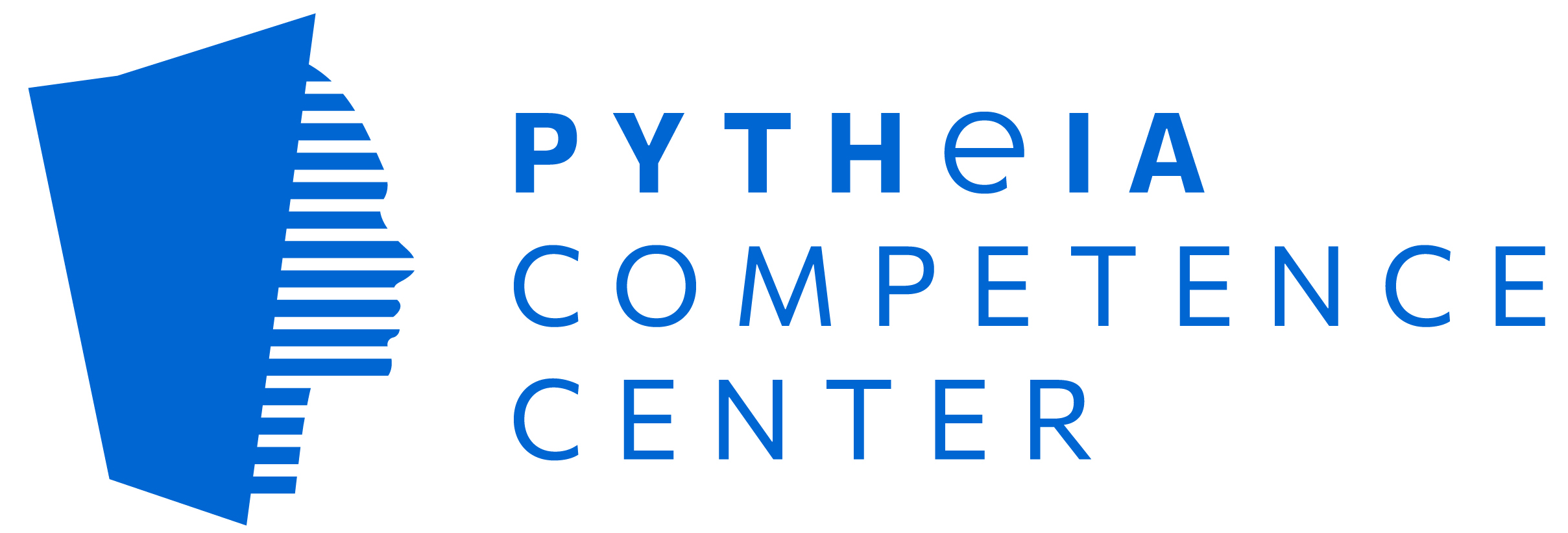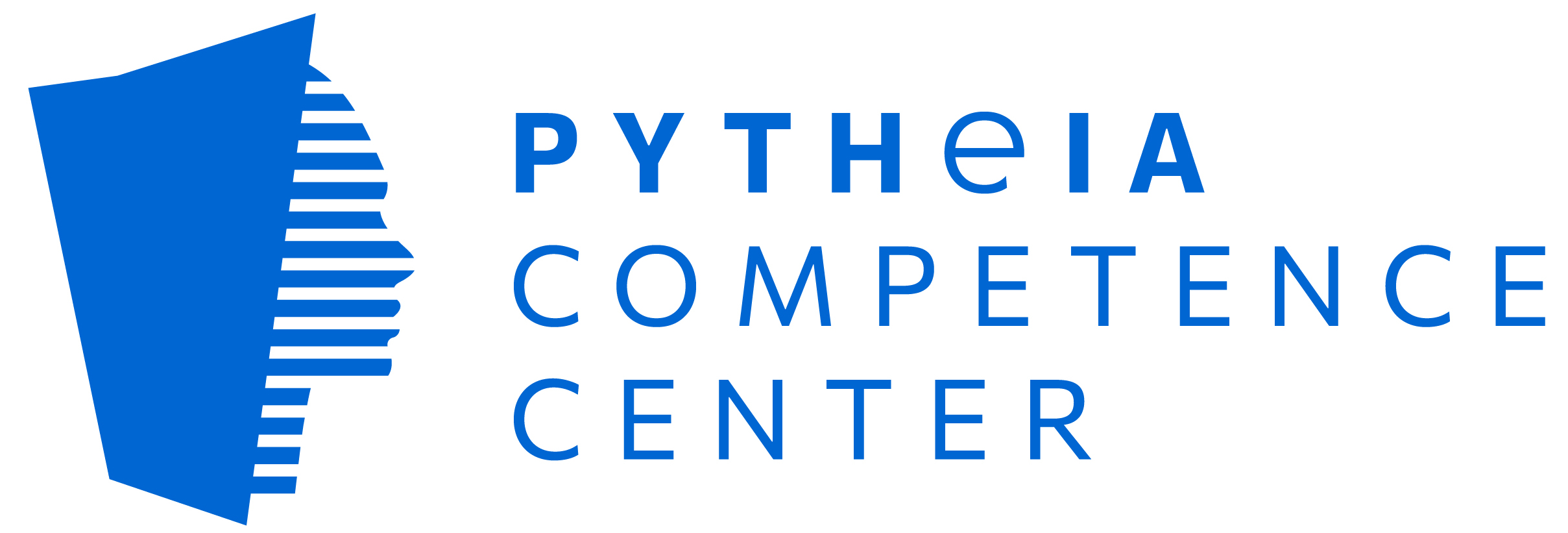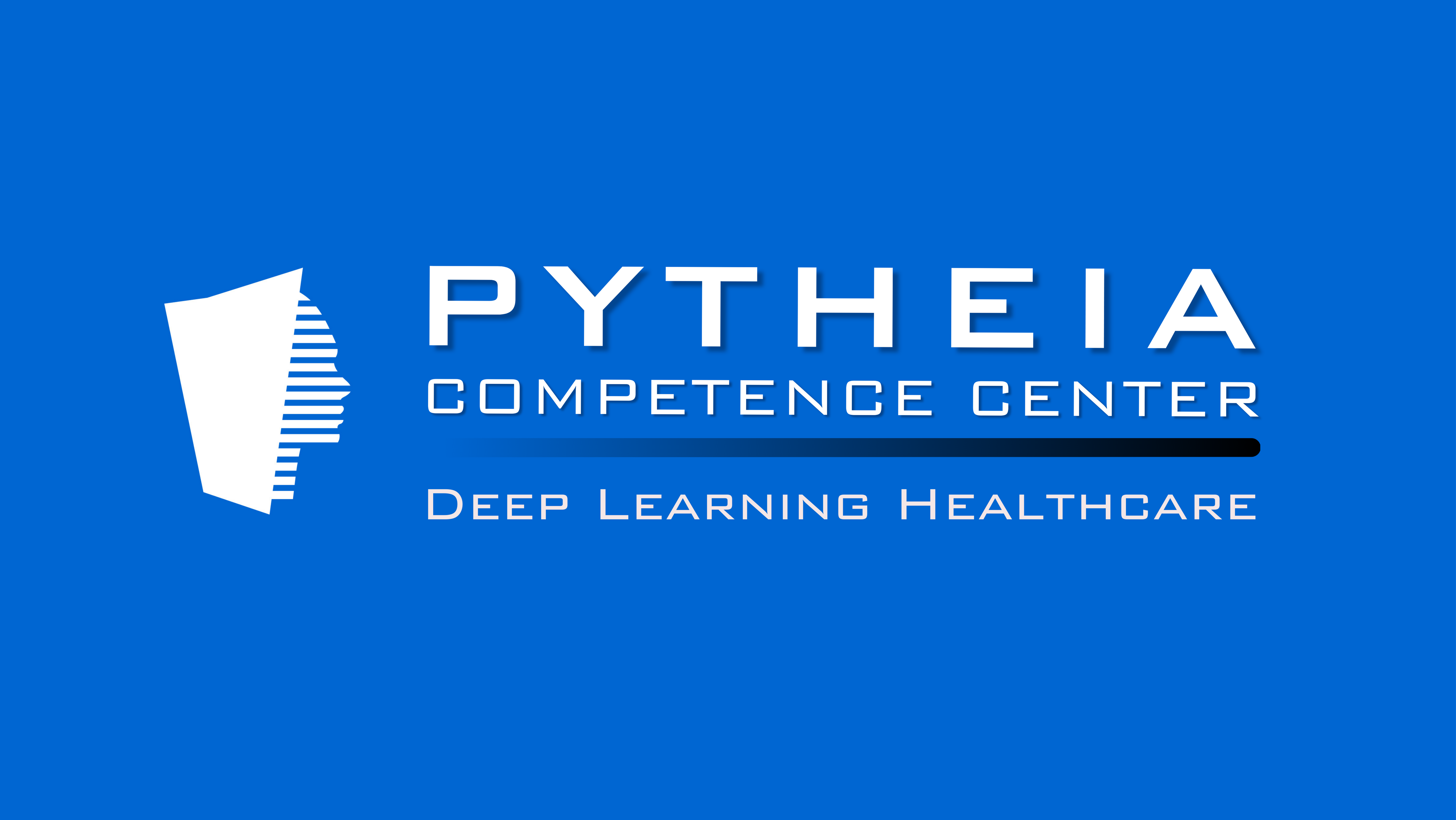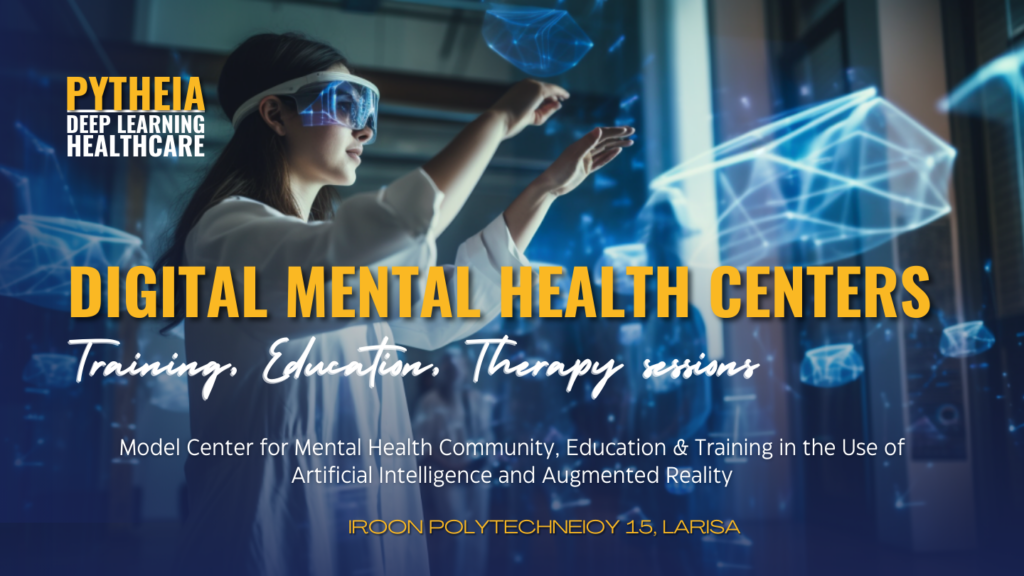
Revolutionizing Mental Health Care in Greece: The Pioneering AI and Augmented Reality Approach at Pytheia's Prototype Center
he realm of mental health care stands on the cusp of a significant transformation, driven by the advent of digital technologies. In an era where innovation is paramount, the integration of Artificial Intelligence (AI) and Augmented Reality (AR) into health services presents a groundbreaking opportunity to enhance traditional mental health practices. Nestled in Larisa, Greece, a pioneering prototype center emerges as a beacon of this revolutionary approach, setting a new standard for mental health care delivery.
The Challenge of Traditional Mental Health Care
Traditional day mental health centers grapple with numerous challenges, including limited accessibility, resource constraints, and the overarching need for more personalized care. These limitations hinder the efficacy of mental health services, often leaving patient needs unmet. The burgeoning demand for innovative solutions has never been more critical, paving the way for digital transformation.
Pytheia’s Prototype Center: A Beacon of Innovation
The Pytheia center, located at Iroon Polytechneiou 15, marks a significant milestone in the evolution of mental health care in Greece. Conceived with the vision of integrating cutting-edge technologies like AI and AR into the healthcare framework, the center represents a forward-thinking approach to mental health treatment and education. This initiative not only aims to revolutionize patient care but also to empower healthcare professionals through advanced training and resources.
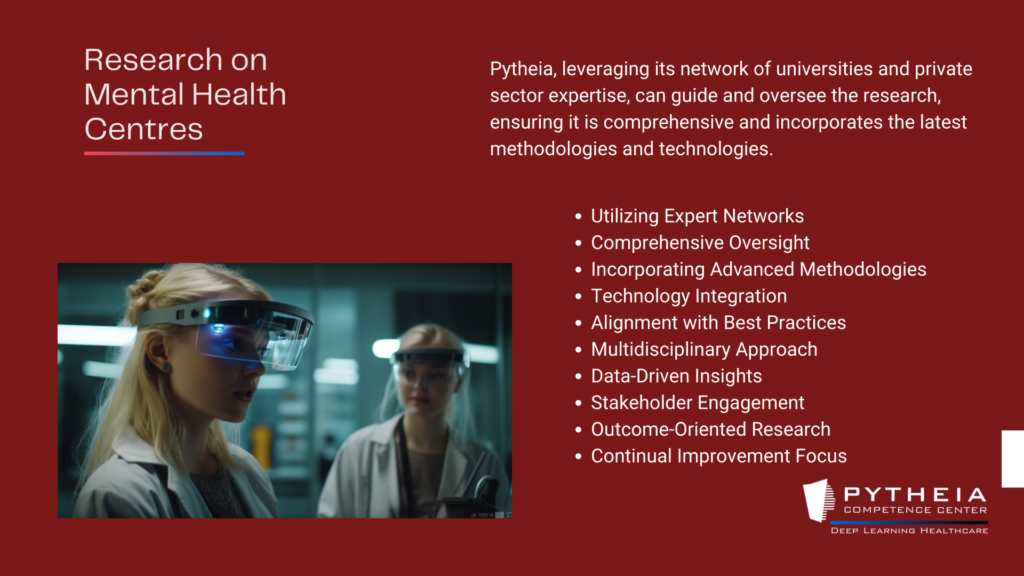
Empowering Caregivers and Patients with AI and Augmented Reality
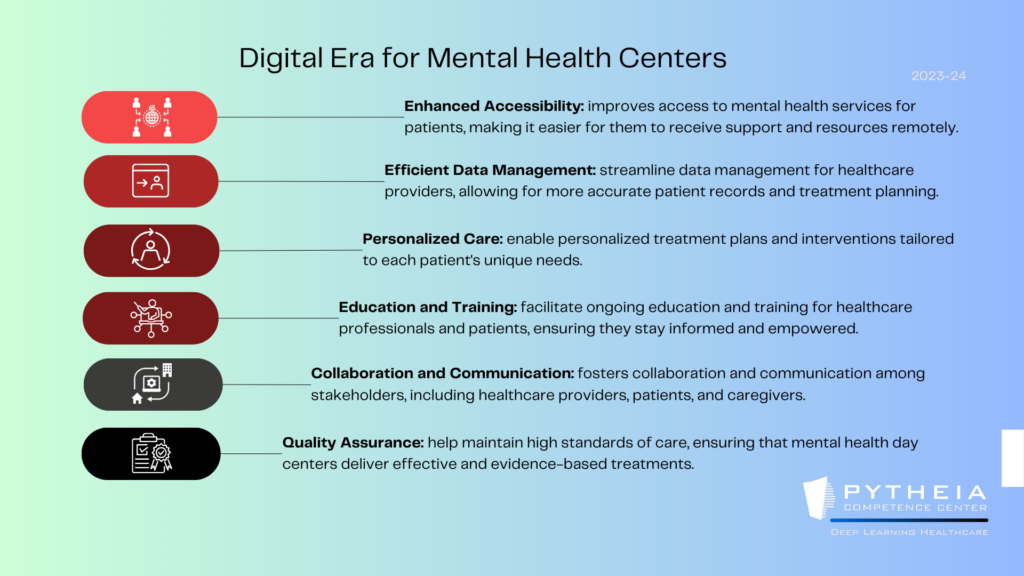
For Healthcare Professionals
- Training and Education: The use of AI and AR in training equips healthcare professionals with simulation-based learning experiences and real-time data analysis capabilities. This innovative approach enhances their understanding of mental health conditions, fostering a deeper level of empathy and precision in care delivery.
- Enhanced Diagnostic and Treatment Capabilities: AI algorithms play a pivotal role in diagnosing mental health issues with greater accuracy and formulating personalized treatment plans. This technological leverage allows for more targeted and effective interventions.
For Patients
- Personalized Therapy Sessions: Augmented reality offers a unique way to create immersive therapy environments, tailor-made for individual patients. This personalization improves patient engagement and the overall effectiveness of therapeutic interventions.
- Self-Management Tools: AI-powered applications and devices empower patients to monitor their mental health, manage symptoms, and maintain connectivity with their healthcare providers. These tools foster a sense of autonomy and encourage proactive management of their condition.
The Impact: Transforming Mental Health Care in Greece
Research on the digital transformation of day mental health centers in Greece has yielded promising results. The Larisa prototype center stands as a testament to the positive impact of AI and AR technologies in mental health care. Testimonials from healthcare professionals, patients, and other stakeholders underline the profound benefits and enhanced care quality achieved through these innovations.
Looking Ahead: The Future of Mental Health Care
The Larisa prototype center is merely the beginning of a broader journey towards the global reshaping of mental health care. Plans for expansion and further research underscore the commitment to not only advance mental health services in Greece but also set a precedent for the rest of the world. The potential of AI and AR technologies to revolutionize mental health care is immense, promising a future where personalized, effective treatment is accessible to al.
